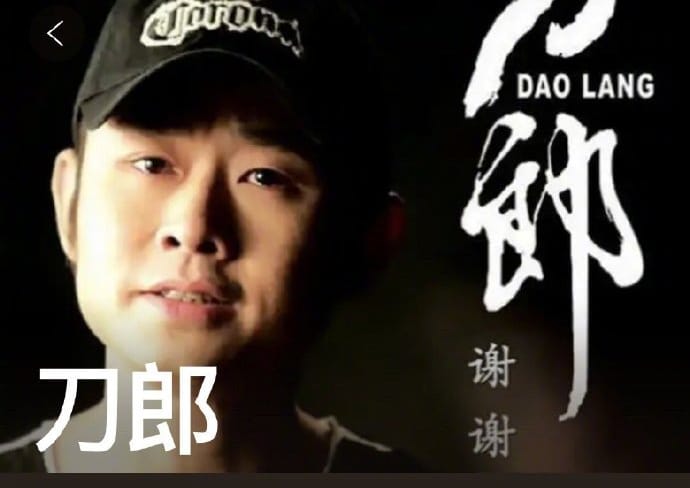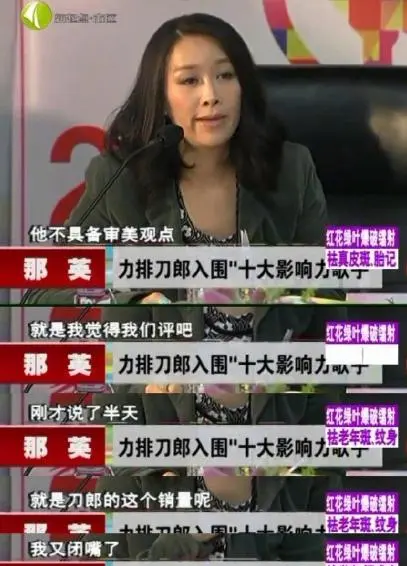A newly released Chinese song, composed and sung by a 52-year-old singer who was primarily active in the 2000s, has achieved an astounding milestone of 8 billion streams in less than two weeks since its release.
The song, titled “Luosha Haishi” (罗刹海市; “Raksha Sea Market” or “Luocha Kingdom”), has been widely acclaimed on various social media platforms, with many claiming that it has surpassed the Guinness World Record for the most streamed track worldwide, a record previously held by “Despacito” in 2017 with 5.5 billion plays. The official Weibo account of Guinness World Records recently stated that they haven’t received any application for a new record yet, and thus, no record has been officially confirmed broken at this time.
However, even 8 billion plays alone are enough to marvel at. The sudden surge in popularity of a song created by a low-profile singer, who has not participated in any major shows or held performances for the last few decades, has raised numerous questions: Who is the singer? What is in the song? And why has it become viral in China? We’ll answer some of these questions for you here.
Question 1: Who is Dao Lang?
Dao Lang (刀郎), whose real name is Luo Lin (罗林), embarked on his musical journey at a young age. Born in 1971, he made the decision to leave school at the age of 17 and fully immerse himself in learning keyboard instruments at a music hall in Neijiang. Over the next four years, he ventured to different locations such as Chengdu, Chongqing, Tibet, and Xi’an, where he gained experience and honed his musical skills. Throughout the 1990s, he actively participated in various music projects and bands, shaping his career in the music industry.
In 2004, Dao Lang’s album The First Snow of 2022 (2002年的第一场雪) was unexpectedly well-received, winning him nationwide popularity. After enjoying success with previous albums, Dao Lang diversified his musical endeavors, collaborating with other artists and exploring different genres, such as folk and ethnic music. Between 2010 and 2012, he participated in various performances and events, including appearing at Hong Kong singer Alan Tam’s concert and the Television Arts Evening Celebration for the 90th Anniversary of the Communist Party of China’s founding.

Dao Lang (Weibo).
Subsequently, Dao Lang appeared to withdraw from social media, only resurfacing with two albums in 2020 and 2021, which were released with minimal promotion. However, it is his latest album, titled There Are Few Folk Songs (山歌寥哉) that has brought him back into the public eye, primarily due to the “Luosha Haishi” song.
Question 2: What’s the Song About?
What makes a song so powerful that it has brought Dao Lang back into the public’s attention after almost 20 years?
The song carries strong folk and ethnic elements, and the lyrics are quite cryptic. The song itself has the same title as an ironic story in the famous Liaozhai Zhiyi (聊斋志异), or Strange Stories from a Chinese Studio, a collection of supernatural and ghostly tales written by Pu Songling (蒲松龄) during the Qing Dynasty (1644-1911).
The song’s sudden popularity is mainly attributed to the mocking implication embedded in the lyrics.
One particular verse, in particular, has sparked significant discussion:
那马户不知道他是一头驴
That Don Kee does not know that he is a donkey
那又鸟不知道他是一只鸡
That Scarlet does not know that she is a whore
勾栏从来扮高雅
Brothels have always pretended to be elegant
自古公公好威名
Since ancient times, eunuchs are fond of their mighty reputation
The terms “Mǎ Hù” (马户) and “Yòu Niǎo” (又鸟), translated here as ‘Don Kee’ and ‘Scarlet’ 1, are not commonly used terms in modern Chinese. Mǎ Hù (马户) is a combination of the characters 马 (mǎ), meaning “horse,” and 户 (hù), meaning “household” or “family.” If these two are combined as one character, you get “驴” (lü), meaning “donkey,” hence the ‘Don Kee’ translation to English.
Similarly, “Yòu Niǎo” (又鸟) is a made-up term consisting of two character components that, when put together, means “chicken” (“鸡”, jī).
Both ‘donkey’ and ‘chicken’ have been used as curses in China. People use phrases such as “as silly as a donkey” (“蠢得像头驴”) to describe foolish behavior. On the other hand, the term “chicken” (鸡) often implies prostitution when used in the singular form, but it can also take on the meaning of “trashy” (辣鸡, a phonetic adaptation of the word 垃圾, rubbish) or “weak” (菜鸡) when combined with other characters.
The term that is translated as “brothel” here is “gōulán” (勾栏), which refers to a type of performance venue for opera in urban areas during the Song and Yuan dynasties but is also used to refer to brothels.
The term “gōng gong” (公公) is used to address the father of one’s spouse, but is also has additional meanings and was historically used as an appellation for eunuchs, (castrated) male servants in the imperial court.
So we could say that the first two lines of these lyrics can be interpreted as mocking or cursing people who are unaware of their own silliness or weak status. When combined with the third and fourth lines, which describe things that are pretentious, we can deduce that these lyrics are meant to point out how some people perceive themselves as much more than they actually are, vainly focused on how they portray themselves to others and their status.
Question 3: Who is Dao Lang Cursing in This Song?
There are various online theories on what or who Dao Lang is actually referring to in this song.
 ︎ One trending theory is that it is about Na Ying (那英). Na Ying is a Chinese singer who rose to national fame after serving as a coach in the the popular television singing show The Voice of China in 2012.
︎ One trending theory is that it is about Na Ying (那英). Na Ying is a Chinese singer who rose to national fame after serving as a coach in the the popular television singing show The Voice of China in 2012.
Despite gaining recognition in 2004 for his album The First Snow of 2002 (2003), Dao Lang was not widely celebrated as an artist at that time. When Chinese media asked various artists about their thoughts on the ‘rising star’ Dao Lang, he was often criticized and belittled. Among those with the deepest grudge against Dao Lang, it is widely rumored that Na Ying was the one.
In 2010, during the selection of the “Top 10 Most Influential Singers of the Decade,” Na Ying, as the jury chairwoman, vehemently opposed Dao Lang’s inclusion. She allegedly believed that Dao Lang’s songs lacked aesthetic value, despite their high sales, and that music should not be solely judged based on sales volume.

Na Ying commented that Dao Lang’s songs lack of aesthetic characteristic in the 2013’s show (source).
This publicly known clash with Na Ying has sparked widespread speculation that the person subtly mocked by Dao Lang in his song is actually her. Moreover, some interpret the repetition of the character “那” (nà, “that”) throughout the song as a reference to Na Ying’s surname.
Soon after the album’s release, Na Ying’s social media accounts were inundated with netizens convinced that the song was directed at her. Her follower count on Douyin (Chinese TikTok) surged from 770,000 to 1,800,000, and her recent video garnered millions of comments, with many referencing Dao Lang’s song and blaming her for belittling Dao Lang back in the day.
 ︎ Another trending theory is that Dao Lang is cursing the popular music talent show The Voice of China and its coaching panel. Besides Na Ying, singers Yang Kun and Wang Feng also received ten thousands of comments related to Dao Lang’s song on their social media accounts.
︎ Another trending theory is that Dao Lang is cursing the popular music talent show The Voice of China and its coaching panel. Besides Na Ying, singers Yang Kun and Wang Feng also received ten thousands of comments related to Dao Lang’s song on their social media accounts.
One of the reasons why people think the song refers to the show is because it contains the line “Before speaking, they turn around” (“未曾开言先转腚”), which reminds people of the show’s “chair turning moment” in which coaches, whose chairs are turned away from the blind audition stage, can press a button that turns their chair around to face the stage if they are impressed by the contestant’s voice and want to work with them.

In the 2015 season of “The Voice of China,” Wang Feng, Na Ying, and Yang Kun (from the second left to the right) participated as coaches (image source).
 ︎ A third trending theory suggests that the song’s meaning extends far beyond the music industry and carries geopolitical implications. Some netizens have let their imaginations run wild, arguing that the song is actually mocking the United States. The opening line “The land of Rakshasa extends 26,000 li to the east, crossing the Seven Gorges and the scorched Yellow Mud Land of three inches” (“罗刹国向东两万六千里,过七冲越焦海三寸的黄泥地”) is a point of focus.
︎ A third trending theory suggests that the song’s meaning extends far beyond the music industry and carries geopolitical implications. Some netizens have let their imaginations run wild, arguing that the song is actually mocking the United States. The opening line “The land of Rakshasa extends 26,000 li to the east, crossing the Seven Gorges and the scorched Yellow Mud Land of three inches” (“罗刹国向东两万六千里,过七冲越焦海三寸的黄泥地”) is a point of focus.
Since 26,000 li is a traditional Chinese unit of distance, equivalent to half a kilometer, some believe it aligns precisely with China’s territory. Consequently, they speculate that the Rakshasa country, located 13,000 kilometers west of China, is a metaphor for the United States.
The Aftermath
Amidst the nationwide speculation on whom Dao Lang is targeting in his song, several “suspects” have responded to netizens’ guesses. Some chose to resolve the controversy humorously, while others indirectly expressed their distress over the online abuse stemming from these unfounded speculations. Recent reports indicate that Na Ying, in her latest debut, seemed to be greatly affected by the harsh comments made by netizens.
While the speculations surrounding the song have garnered significant attention for both the song and the singer, some discussions are not necessarily constructive. As some netizens point out, the song might not even aim to curse anyone.
It could also be that the song is simply inspired by one of the stories in the book Strange Stories from a Chinese Studio (聊斋志异), which is set in a place called Rakshasa Country, located 26,000 li west of China, resembling a bustling market. In this country, people have peculiar and bizarre appearances, and the more non-human they look, the more attention they receive, while those who appear human live at the bottom of society. Therefore, it is possible that the song aims to narrate these stories instead of attacking someone in particular.
Moreover, the extensive speculations surrounding the song’s intention have also seemingly transformed Dao Lang’s music from a source of enjoyment into a source of analysis, with netizens now meticulously scrutinizing every lyric line.
Among the billions of streams, it begs the question: how many listeners are genuinely enjoying Dao Lang’s music, and how many are just eager sleuths, searching for clues to support their theories about the song’s targets? This raises some curiosity about the true significance of the song’s popularity.
On the other hand, Dao Lang would likely not mind if the song eventually finds its place in the Guinness Book of Records, alongside a note that recognizes it as “the no 1 one most-played hit song that kept everyone guessing.”
By Zilan Qian
Follow @whatsonweibo
1. Part of the translation provided, namely the translation of ‘Ma Hu’ 马户 as ‘Don Kee’ and ‘You Niao’ 又鸟 as ‘the scarlet woman’ was created by Xiangdong Zhu & Ning Wan on Wenxuecity.com on August 1st 2023, although the original page has since been deleted.
This article has been edited for clarity by Manya Koetse
Get the story behind the hashtag. Subscribe to What’s on Weibo here to receive our newsletter and get access to our latest articles:
Part of featured image via Xigua Shipin.
Spotted a mistake or want to add something? Please let us know in comments below or email us. First-time commenters, please be patient – we will have to manually approve your comment before it appears.
©2023 Whatsonweibo. All rights reserved. Do not reproduce our content without permission – you can contact us at info@whatsonweibo.com.
The post Behind 8 Billion Streams: Who is Dao Lang Cursing in the Chinese Hit Song ‘Luocha Kingdom’? appeared first on What's on Weibo.